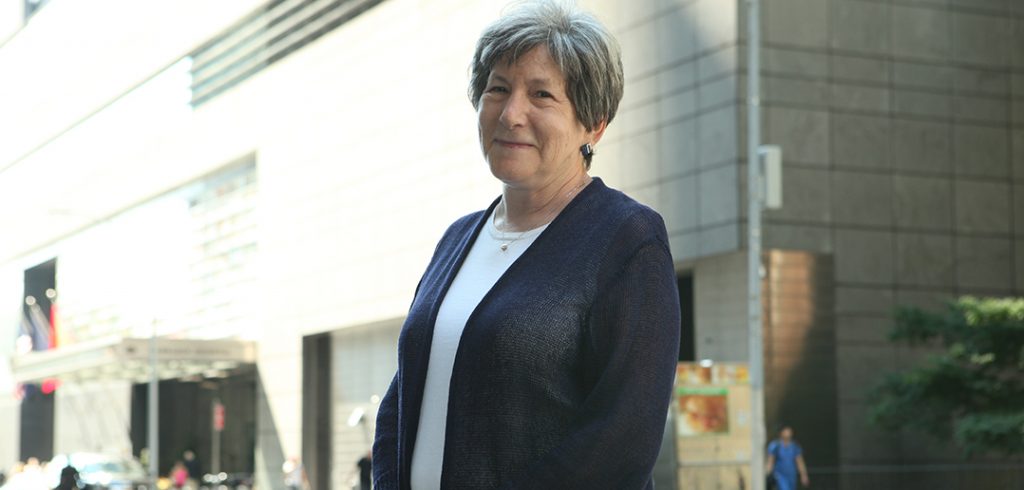WHO SHE IS
Director of Community Engagement and Partnerships at the Graduate School of Social Service (GSS)
TIME AT FORDHAM
Two and a half years.
WHAT SHE DOES
“A school of social work, by definition, is very connected to the community. I try to amplify the role and visibility of the school in the community of New York City and the region.”
BACKGROUND
Fordham is Wackstein’s first academic role following a long career in city government and at nonprofit organizations. She worked in homeless services in Mayor David Dinkins’ administration. For the past 25 years she served as an executive director, first at Lenox Hill Neighborhood House, and then at a federation of 38 settlement houses and community centers called United Neighborhood Houses. She recently helped facilitate tours for Fordham students of settlement houses here in New York and London.
CONNECTING THE CONNECTIONS
She helps form connections with government and nonprofit organizations beyond the established relationships the school already has because of student field placements. (Students at GSS are required to complete 1200 hours of fieldwork at government and nonprofit agencies).
She recently arranged a partnership with Goddard Riverside Community Center, which will work with Fordham researchers to survey residents of nearby Amsterdam Houses, the public housing developments behind Fordham’s Lincoln Center campus. Funding for the project will come from New York Community Trust, the city’s nonprofit community foundation. She also designed the selection process for a new scholarship provided by Catholic Charities for staff from that organization to get their M.S.W. at GSS. Similarly, she’s been working with New York Foundling to help identify GSS social work students with interests in child welfare that could be eligible for scholarships from that organization.
FROM PROTEST TO ENGAGEMENT
“We had a lot of teachers in my family, but I think coming of age in the late 60s, early 70s, with all the protests and activism, I became aware of the world of social justice. What gives me hope today is that with all the current protests, we’re seeing an uptick in people’s interest in action and social justice.”
NAVIGATING NONPROFITS
“When I was running Lenox Hill, the settlement house, I always felt like I had to be like an interpreter or a chameleon. We had a wealthy board of directors from the Upper East Side—people who were very generous to our organization; they spoke one language. When speaking to my staff of social workers and teachers, that was another language. Then we had to communicate with our clients who were homeless people, older adults, and kids. We treated them with the same dignity and respect as Mrs. Park Avenue—who had dignity too, just in a different way.”
ADVICE FOR SOCIAL WORKERS
“I tell the students here at the School of Social Services, ‘Your job, whether you are a clinical social worker, whether you’re an administrator, or whether you’re a policy person, is to manage different constituencies.’ My work here is the same. You deal with faculty. You deal with administrators. You deal with students. These are different stakeholder groups. It’s the same. You just have to be your authentic self and treat everyone with equal dignity.”

